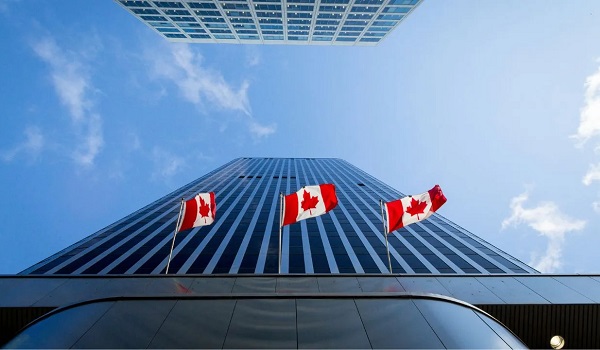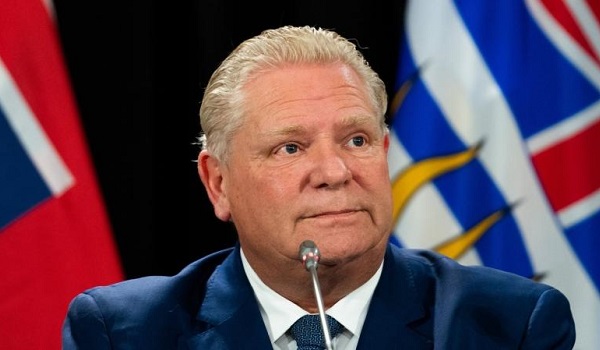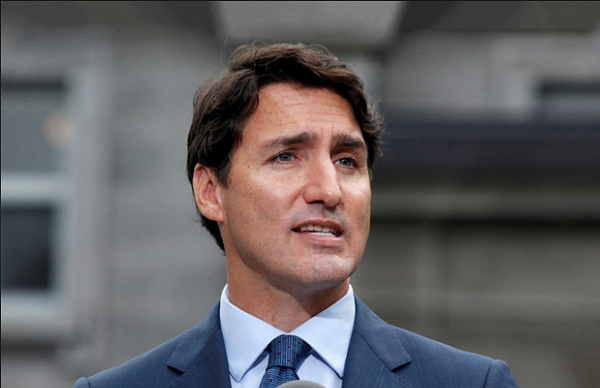Canada is spiralling toward a full-blown refugee crisis
This government isn’t great at acting on warnings. Back in 2017, the Senate’s Legal and Constitutional Affairs committee released a report that, among other things, cautioned that “excessive vacancies” of federally appointed judges were causing critical delays that, in some cases, meant accused criminals were walking free. At the time, there were 53 vacancies for federally appointed judges. That figure peaked in 2023, six years later, with 79 open spots. It took a federal court ruling (and a glut of bad press about cases where, for example, a man found guilty of rape was released because of procedural delays) for the government to finally step up its appointment process. As of Oct. 1, the number of vacancies is down to 52.
That’s not the only example. This government was warned in 2017 and in 2018 that conditions in Jasper National Park were ripe for a “catastrophic” wildfire, and it was advised in 2022 to take action, including with prescribed fires. That didn’t happen and, as predicted, there was a catastrophic wildfire in Jasper this past summer. The government was warned, repeatedly, about foreign meddling in our elections. It’s only starting to take action now that allegations have been aired out through a public inquiry. It has been warned about our lack of defence readiness, about our economic productivity problem, about the worsening health care crisis across the country. But it usually takes a cataclysmic event – a wildfire, a pandemic, or worst of all, a litany of bad press – to belatedly compel the federal government into action.
It’s too late to fix the immigration disaster the Liberal government created (and yes, it’s one created amid warnings about housing pressures, about eroding public confidence in our vetting system, and about undermining the objectives of certain immigration streams. But the government can and should act to get ahead of the next phase of Canada’s immigration debacle.
It is plainly obvious that Canada is spiralling toward a full-blown refugee crisis. There are clear signs: the number of refugee claims by people arriving at airports exploded in recent years thanks to the government’s 2016 decision to waive the visa requirement for travellers from Mexico (which was reinstated earlier this year), along with the decision to scrap the requirement that travellers from certain regions have return tickets before arriving. In 2023, 41,350 asylum claims were made at air ports of entry; in 2016 that figure was 3,040 – an increase of over 1,200 per cent. In 2023, 25,236 Mexican nationals claimed asylum in Canada, compared with just 250 in 2016. As of June, 2024, there are 29,146 claims from Mexican nationals still waiting to be heard.
But it’s not just at airports. Immigration Minister Marc Miller noted in a Global News interview last month that his department is observing an “alarming trend” of international students claiming asylum once in Canada: nearly 13,000 so far this year, according to data from Immigration, Refugees and Citizenship Canada. It was a predictable response to the government’s sudden about-face on student visas; until this year, the government’s own literature and advertising implored would-be students to “Study, Explore, Work, and Stay.” The implication was that coming to Canada on a student visa was a path to permanent residency. But now they’re being told they can no longer stay. The government has capped international student permits and tightened eligibility for postgraduate work permits, while also changing its selection criteria for permanent residency under its Express Entry system. The effect is that somewhere between 70,000 and 130,000 foreign students, according to estimates, will see their visas expire in 2024 and 2025.
Students who then claim asylum will de facto get at least three more years in the country (current wait times are about two years for a hearing and one year for an appeal, but those timelines will certainly get longer). During that time, they’ll be eligible for medicare, lower tuition fees and work permits, though approval for the latter can be subject to lengthy delays. Some will put down roots and start families, which will make the situation all the more complicated if their claims for asylum are ultimately rejected.
Canada cannot simply refuse to hear claims from residents on temporary student visas; the rights conferred under the Charter of Rights and Freedoms don’t discriminate based on the pathway individuals used to arrive in Canada. But what this government can do is increase capacity (and we know that if there’s anything the Liberals do well, it’s adding to the public service) to stamp papers, process claims and hear appeals. There will be an onslaught of claims from people already in the country, so it needs to tighten up border controls (which, to its credit, it appears to already be doing) to limit asylum claims from those seeking to enter Canada. It’s not ideal that those legitimately seeking refuge in Canada may be denied the opportunity, but it’s a consequence of this government ignoring years of warnings. It cannot ignore these next ones.
This article was first reported by The Globe and Mail













